Japan Crypto License Capital Calculator
Calculate Your Compliance
Japan requires 10 million yen (approx. $68,000 USD) minimum capital for licensed exchanges. Verify if your proposed capital meets the requirement.
Why This Matters
Japan's requirement ensures exchanges have sufficient financial backing. The 10 million yen minimum (with positive net assets) prevents insolvency risks and protects user funds. Exchanges must maintain this capital throughout operations.
Japan doesn’t just regulate cryptocurrency exchanges-it demands them to be bulletproof. Since 2017, the country has built one of the strictest, most detailed crypto licensing systems in the world. And as of September 2025, it just made it even harder to operate. If you’re thinking about launching a crypto exchange in Japan-or even just using one-you need to understand exactly what’s required, why it’s so tough, and what it means for your money.
Why Japan’s Rules Are Different
Most countries struggle to decide whether crypto is money, a commodity, or a security. Japan already made that call back in 2017: virtual currencies are legal property. That simple definition changed everything. It meant exchanges weren’t just payment processors-they were financial institutions. And that’s why the Financial Services Agency (FSA) stepped in with rules that look more like banking regulations than tech startup guidelines. The shift in September 2025, moving oversight from the Payment Services Act (PSA) to the Financial Instruments and Exchange Act (FIEA), wasn’t just a paperwork change. It meant crypto assets are now treated based on their function. Payment tokens? Still under PSA. But tokens that act like investments-like security tokens or tokenized real estate-are now under the same rules as stocks and bonds. This eliminates the messy gray zones that plague the U.S., where the SEC and CFTC argue over jurisdiction. Japan’s approach is clean: if it behaves like a security, it’s regulated like one.What It Takes to Get Licensed
You can’t just register online and start trading. To get licensed in Japan, you need to be a kabushiki-kaisha-a Japanese joint-stock company-with a physical office, a resident manager who takes personal legal responsibility, and a track record of financial stability. The minimum capital requirement? 10 million yen (about $68,000 USD), plus positive net assets. That’s not a startup budget. That’s a mid-sized firm’s balance sheet. But the real cost isn’t the money-it’s the time. The average application takes 18 to 24 months. Why? Because the FSA doesn’t just check your paperwork. They test your systems. You have to run a six-month shadow operation where every trade, every withdrawal, every login is simulated under FSA watch. No errors allowed. One glitch, and you’re back to square one. Security is non-negotiable. After the $534 million Coincheck hack in 2018, Japan made cold storage mandatory. At least 95% of all user funds must be kept offline. No exceptions. Exchanges also need DDoS protection that can handle attacks over 1 terabit per second, multi-signature wallets, and 24/7 monitoring teams ready to respond within 15 minutes of any alert. Most spend between $500,000 and $1 million just to meet these standards.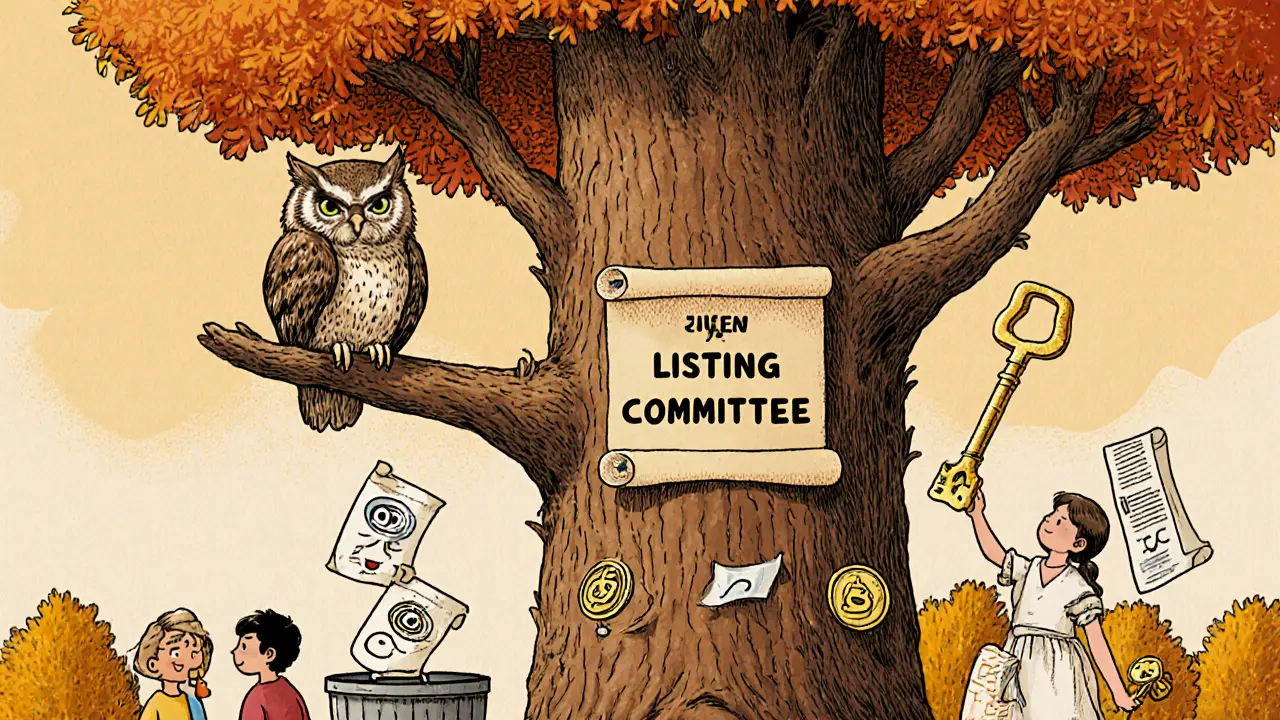
The Hidden Gatekeeper: JVCEA
The FSA sets the floor. The Japan Virtual Currency Exchange Association (JVCEA) sets the ceiling. Of the 21 licensed exchanges as of June 2025, 18 belong to JVCEA. And JVCEA doesn’t just follow the rules-it adds its own. Want to list a new token? You can’t. Not without JVCEA’s approval. Their Token Listing Committee, made up of 17 experts, reviews every single application. In Q2 2025 alone, they rejected 72% of submissions. That’s not because the tokens are bad-it’s because they’re too risky. Meme coins? No. Tokens with anonymous teams? No. Tokens that haven’t been audited by a Japanese-certified firm like NCC Group? No. In April 2025, JVCEA froze all new token listings for 30 days after a surge in scam coins. That kind of control doesn’t exist in Singapore or Dubai. It’s why Japanese exchanges have fewer altcoins-but also far fewer scams.What You Can’t Do (And Why It Matters)
Japan’s rules aren’t just about safety-they’re about limiting risk. That’s why margin trading is capped at 2x leverage. In 2023, the FSA cut it from 4x to 2x after seeing retail traders get wiped out by volatile swings. The result? A 15% drop in active day traders on Japanese platforms, according to CryptoCompare. That’s a pain for traders who want to go big. But for regular users? It’s a relief. Reddit user ‘TokyoTrader88’ posted in August 2025 that their 2.3 BTC stayed safe during a March security breach because Bitbank followed the 95% cold storage rule. Meanwhile, exchanges in less regulated markets lost funds. That’s the trade-off: less excitement, more security. And you won’t find many banks working with crypto exchanges. Only 8% of Japanese banks currently offer fiat on-ramps. That’s because of 2020 guidelines that ban banks from holding crypto directly. But that could change. In September 2025, the FSA floated a new rule allowing megabanks like Mitsubishi UFJ to become licensed exchange operators-with strict capital buffers of 30% against crypto holdings and stress tests for 80% price drops. If that passes, Japan’s market could explode.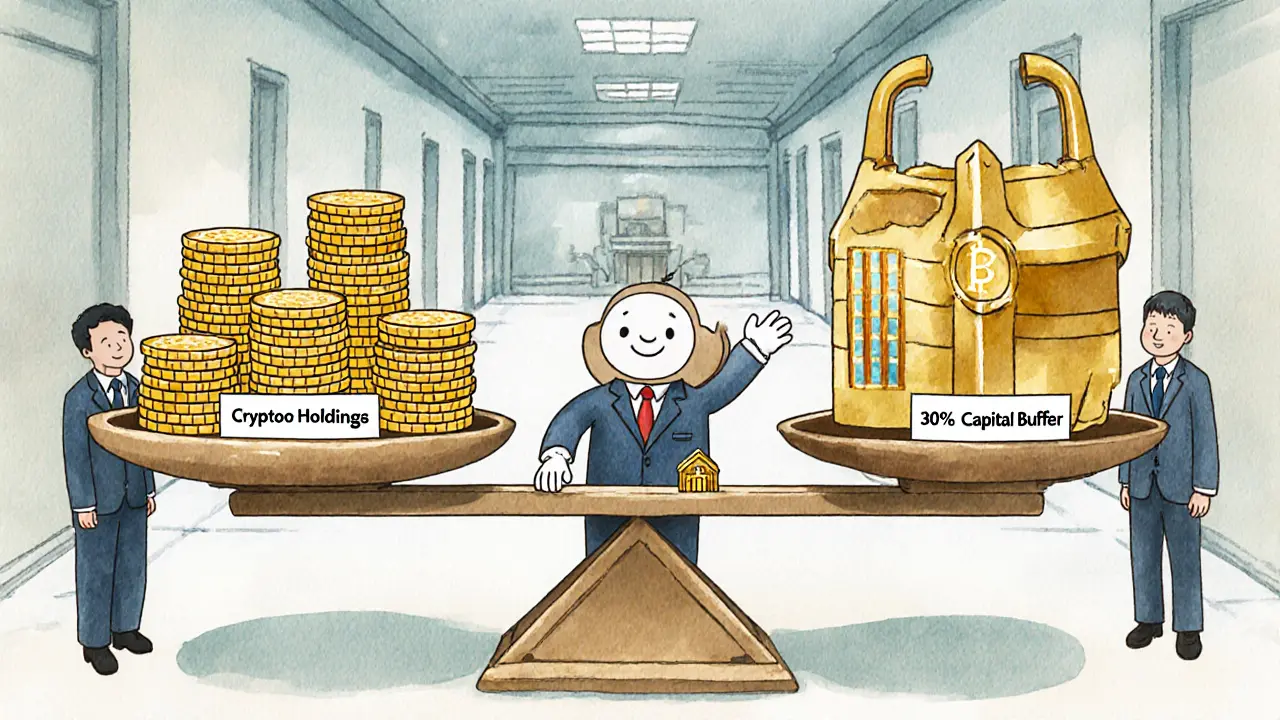
Who’s Winning and Who’s Losing
Japan’s system favors long-term stability over speed. The 12.1 million registered crypto accounts as of February 2025 make it the third-largest market globally. And 87% of users say they feel “very” or “somewhat” secure using licensed exchanges-compared to just 63% in unregulated markets. But it’s not perfect. Retail investors complain about the slow token listings. Trustpilot reviews for GMO Coin show users frustrated they can’t trade trending coins until JVCEA approves them-sometimes months after global launch. Professional traders hate the 2x leverage cap. And compliance costs are brutal: Japanese exchanges spend 25% of revenue on regulation, compared to 15% in Singapore. Still, the global regulatory index from the Chamber of Digital Commerce ranked Japan third for clarity-behind only Switzerland and Singapore. Why? Because there’s no guesswork. You know what’s allowed. You know what’s not. And you know what happens if you break the rules.What’s Next? The Big Shift in 2026
By March 2026, Japan plans to fully complete its transition to the FIEA. That means crypto will be regulated under the same legal framework as stocks, bonds, and derivatives. It’s a historic move-the first time a major economy has unified digital assets with traditional finance under one roof. The new Electronic Payment Instrument and Crypto-asset Intermediary Service Business (ECISB) framework will require exchanges to notify the FSA before launching any new service. And if the proposed bank licensing rules pass, Japan’s biggest financial institutions could enter the market. That could bring billions in institutional capital-and make Japan the most stable, trusted crypto hub in Asia. For now, the message is clear: if you want to operate in Japan, you don’t just need a good product. You need a fortress.How many crypto exchanges are currently licensed in Japan?
As of June 2025, 21 crypto exchanges hold active licenses from Japan’s Financial Services Agency (FSA). Since 2017, 17 exchanges have had their registrations canceled for failing to meet compliance standards, including issues with security, financial reporting, or AML procedures.
What is the minimum capital requirement to get a crypto license in Japan?
Exchanges must have a minimum of 10 million yen (approximately $68,000 USD as of September 2025) in capital, plus positive net assets. This requirement ensures operators have enough financial backing to cover operational risks and customer liabilities.
Why does Japan require 95% of crypto to be stored offline?
This rule was introduced after the 2018 Coincheck hack, where $534 million in NEM tokens were stolen from an online wallet. To prevent similar losses, the FSA mandates that at least 95% of user assets be held in cold storage-offline, air-gapped systems that are immune to remote hacking. The remaining 5% can be kept hot for withdrawals, but must be insured.
Can I trade with leverage on Japanese crypto exchanges?
Yes, but only up to 2x leverage. In 2023, the FSA reduced the maximum from 4x to 2x to protect retail investors from extreme losses during volatile market swings. This is one of the strictest leverage limits among major markets-Dubai allows up to 100x, and Singapore has no official cap.
Why are new tokens hard to list on Japanese exchanges?
All new tokens must be approved by the Japan Virtual Currency Exchange Association (JVCEA), which has a 17-member committee that reviews whitepapers, smart contract audits, and potential market manipulation risks. In Q2 2025, 72% of token listing applications were rejected. This slow, cautious process prevents scams but delays access to new assets compared to global markets.
Can Japanese banks offer crypto services in the future?
Possibly. The FSA is currently reviewing rules to allow major banks like Mitsubishi UFJ to register as licensed cryptocurrency exchange operators. Any approved framework would require banks to hold 30% capital buffers against crypto holdings and pass stress tests for 80% price declines. This could bring institutional money into the market by 2026.
How long does it take to get a crypto license in Japan?
The average process takes 18 to 24 months. This includes submitting documents, undergoing a six-month shadow operation where all systems are tested under FSA supervision, passing third-party audits, and receiving final approval. Many applicants drop out due to the complexity and cost.
Is Japan’s crypto framework better than the U.S. or Singapore’s?
It depends on your goal. If you want clear, predictable rules and strong consumer protection, Japan’s system is superior. The U.S. has conflicting regulators (SEC vs. CFTC), and Singapore allows faster innovation but with less oversight. Japan trades speed for safety-making it the most trusted market for retail investors, but harder for startups and traders seeking high leverage or quick token access.
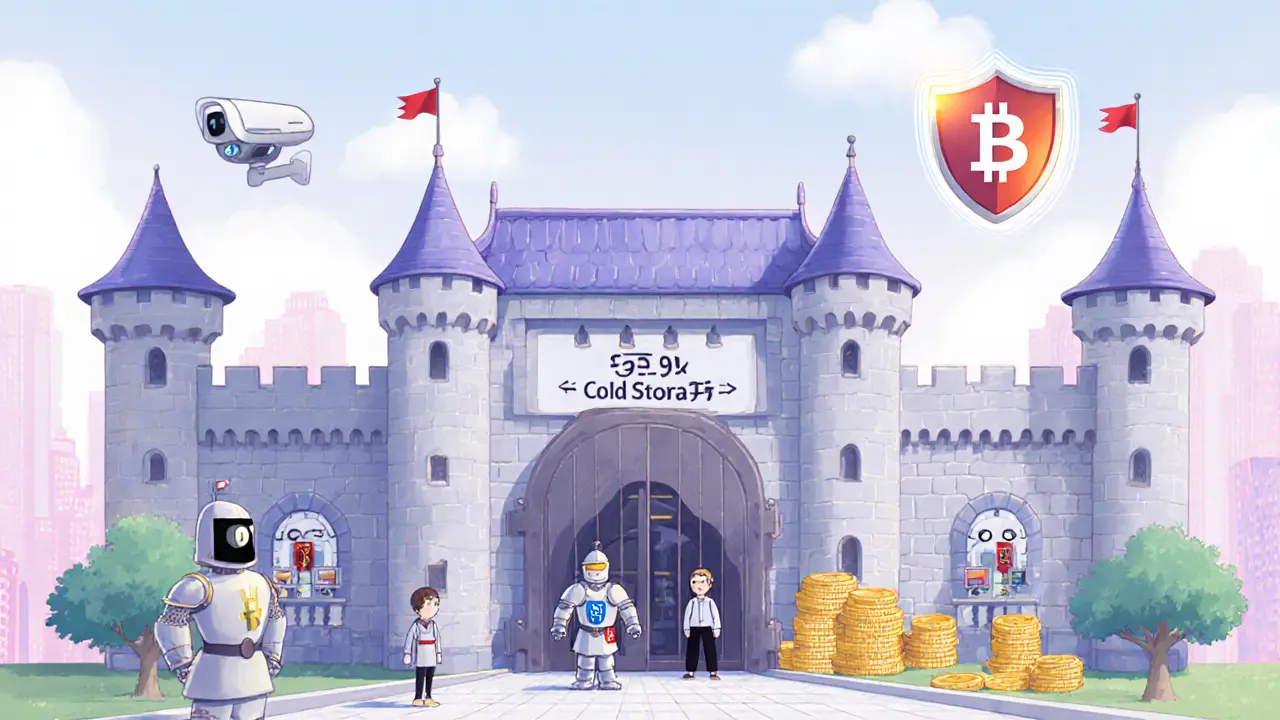
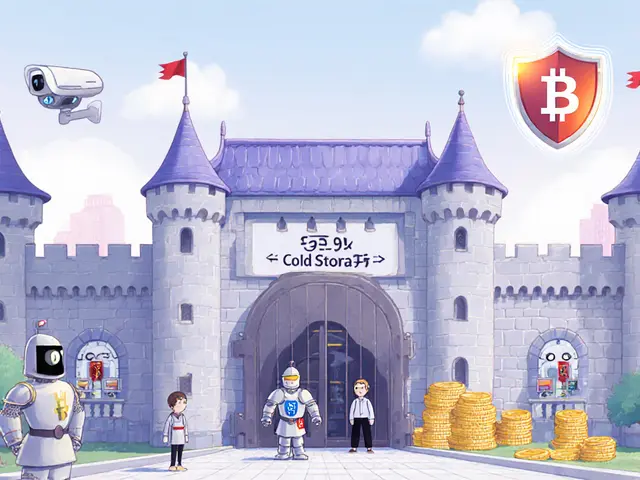
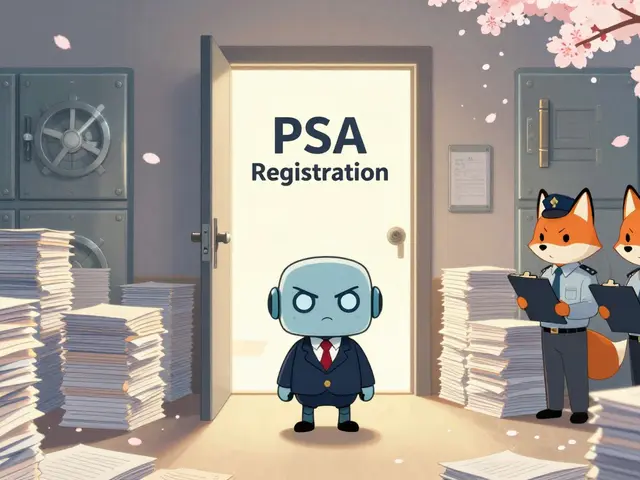
Marcia Birgen
November 17, 2025 AT 21:39Japan's crypto rules are wild but kinda beautiful 😍 Like, yeah it’s slow, but at least my coins aren’t getting hacked while I’m binge-watching Netflix. 95% cold storage? YES PLEASE. 🙌
Jerrad Kyle
November 18, 2025 AT 23:36Man, this is the kind of regulatory clarity I wish the U.S. had. Instead of playing regulatory whack-a-mole with the SEC and CFTC, Japan just says: if it acts like a security, treat it like one. Clean. Elegant. No drama. 🇯🇵✨
Usama Ahmad
November 19, 2025 AT 13:17I work in fintech in India and honestly, this feels like a dream. We’re still fighting with banks to even understand what crypto is. Japan’s system is like a well-oiled machine - slow, but it doesn’t break.
Jess Zafarris
November 20, 2025 AT 20:54So let me get this straight... you need $68k just to apply, then wait two years, then spend half a mil on security, and THEN you might get approved... and the *real* gatekeeper is a private association that rejects 72% of tokens? Sounds less like a marketplace and more like a country club for crypto elites.
jesani amit
November 22, 2025 AT 01:55You know what I love about Japan’s approach? They’re not trying to be the fastest, they’re trying to be the safest. I’ve seen friends lose everything in places where you can trade 100x leverage on a meme coin with no KYC. Here? You can’t even list a token without a Japanese audit. It’s boring, yeah, but it’s the kind of boring that keeps your life intact. Seriously, if you’re just trying to hold Bitcoin long-term, this is paradise.
Peter Rossiter
November 22, 2025 AT 04:3795% cold storage? Big deal. Every exchange says that. Until you see the 5% hot wallet get drained in a 3am phishing attack. The real story is how many times they’ve actually been breached since 2018. Zero? Doubt it.
Mike Gransky
November 23, 2025 AT 08:24The FIEA shift is massive. Unified regulation under one legal umbrella? That’s what every jurisdiction should be aiming for. No more SEC vs CFTC finger-pointing. No more regulatory arbitrage. Just clear rules. This is the future of global crypto policy - not hype, not chaos, just structure.
Ella Davies
November 24, 2025 AT 21:21I’ve used Bitbank for 3 years. Never had an issue. Never even thought about leverage. Just buy, hold, sleep. The fact that they had zero downtime during the March breach? That’s the quiet win.
Nataly Soares da Mota
November 26, 2025 AT 08:58What we’re witnessing here is the institutionalization of digital property rights through a post-modern legal epistemology. The FIEA doesn’t merely regulate - it ontologically reifies crypto-assets as fungible financial instruments, collapsing the Cartesian dichotomy between speculative token and regulated security. The JVCEA, then, becomes the epistemic authority, the hermeneutic gatekeeper mediating between market liquidity and epistemic legitimacy. This isn’t regulation - it’s epistemic governance.
Teresa Duffy
November 27, 2025 AT 04:29If you’re a retail investor who just wants to hold Bitcoin without losing your shirt - Japan is your safe haven. I used to trade on Binance, lost 40% in a week because of some shady altcoin. Now I only use Japanese platforms. No thrills, no panic, just peace. And honestly? Worth it.
Sean Pollock
November 27, 2025 AT 18:36Japan’s sooo strict lol. Like bro why not just let people be free? Also I heard the FSA is run by 70 year old guys who think crypto is a cult. 95% cold storage? Sounds like they’re scared of their own shadow 😂
Carol Wyss
November 29, 2025 AT 18:04I get why people complain about slow token listings… but remember how many rug pulls happened last year? I’d rather wait 6 months for a token to be approved than lose my rent money to a Telegram group with 300 followers. 💛
Student Teacher
November 30, 2025 AT 11:51I’m a student researching global crypto regulation. Japan’s model is the most documented and transparent I’ve seen. The JVCEA publishes rejection reasons publicly. That’s next-level accountability. Other countries should take notes.
Ninad Mulay
December 1, 2025 AT 05:39In India, we’re still trying to get banks to even open accounts for crypto startups. Japan’s system is like a sci-fi movie compared to our chaos. But honestly? I kinda wish we had this. Less scams, more trust. Even if it’s slow.
Mike Calwell
December 3, 2025 AT 00:3424 months to get licensed? Bro that’s forever. I just wanna trade shiba. Why do they make it so hard?
Jay Davies
December 4, 2025 AT 02:32The claim that Japan’s framework is superior to Singapore’s is statistically dubious. Singapore’s MAS adopts a principles-based approach, allowing innovation while maintaining oversight. Japan’s model is rigid, bureaucratic, and stifles market dynamism. The Chamber of Digital Commerce ranking is misleading without weighting for innovation metrics.
Grace Craig
December 4, 2025 AT 06:40The FIEA’s harmonization of crypto-assets under the Financial Instruments and Exchange Act constitutes a paradigmatic shift in the jurisprudential architecture of digital finance. One can scarcely overstate the significance of this move toward epistemological coherence in regulatory taxonomy. The JVCEA’s token review protocols, while ostensibly restrictive, represent a sophisticated form of fiduciary stewardship.
Ryan Hansen
December 5, 2025 AT 01:39I’ve been following Japan’s crypto scene since 2019. The thing people miss is that the 24-month approval process isn’t just bureaucracy - it’s a filter. It weeds out the fly-by-night operators who think they can just copy-paste a whitepaper and launch. The exchanges that make it? They’re built to last. That’s why Japanese platforms have zero major hacks in 7 years. That’s not luck. That’s design.
Derayne Stegall
December 6, 2025 AT 20:41JAPAN IS THE FUTURE 🚀🔥 95% cold storage? 2x leverage? Token committees? YES. I’m moving my entire portfolio there. No cap on growth - just cap on dumb decisions. 💪🇯🇵